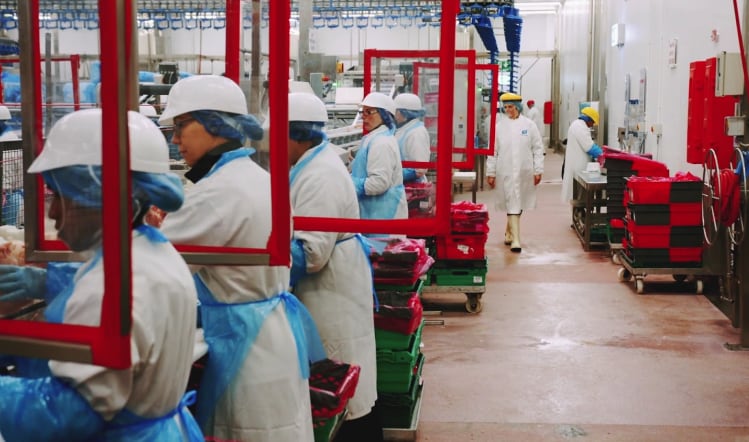Some air cleaning systems are marketed as being effective against the virus, meaning food businesses have employed them to increase protection for workers against COVID-19.
However, the Government’s Scientific Advisory Group recently stressed that such systems need to be independently validated. It identified a lack of robust scientific data supporting the efficacy of such systems against relevant test organisms under realistic in-use conditions.
The test developed by Campden BRI uses a surrogate organism, which is structurally similar to SARS-CoV-2, in a specialist aerobiology laboratory. The method is the latest edition to Campden BRI’s suite of COVID-19 services that includes the PCR-based nose and throat swab test designed specifically for workforces.
Adaptability
“With an aerobiology laboratory capable of representing factory conditions, we steered our ongoing research project on the effective control of viruses towards a method that could validate these claims and help businesses create COVID-secure environments,” said Annette Sansom, senior research officer at Campden BRI who led the development of the method.
The test has been designed to adapt to various environments encountered throughout the food and drink industry. For example, as meat and poultry factories are kept cold to prevent the growth of listeria, the aerobiology laboratory can be chilled to assess an air cleaner’s effectiveness in these conditions.
“Having a method that can replicate real-life conditions is key to ensuring an air cleaning system can effectively remove SARS-CoV-2 in that environment,” Samson added.
Future concerns
Rob Limburn, microbiology group manager at Campden BRI who helped develop the validation method, said: “We’ve found that the ‘next virus’ is a real concern for many food businesses and is partly the reason why they’re considering installing these systems. They’re thinking of both the current health crisis and future pandemics.”
Limburn added: “Some air cleaning systems produce ozone and/or other potentially hazardous by-products, such as CO2, during operation. It’s therefore important that such devices are tested to ensure that levels of these substances do not exceed recommended maximum levels under in-use conditions.”
Air to surface
Some cleaning systems claim to be effective against SARS-CoV-2 on surfaces as well as in the air. Campden BRI said testing these claims where the device will be used is ‘a robust way of ensuring this effectiveness’.
The organisation said Limburn recently trialled the testing method on a boat, which ‘demonstrated how the test can assess claims of surface activity in a number of different settings’.




